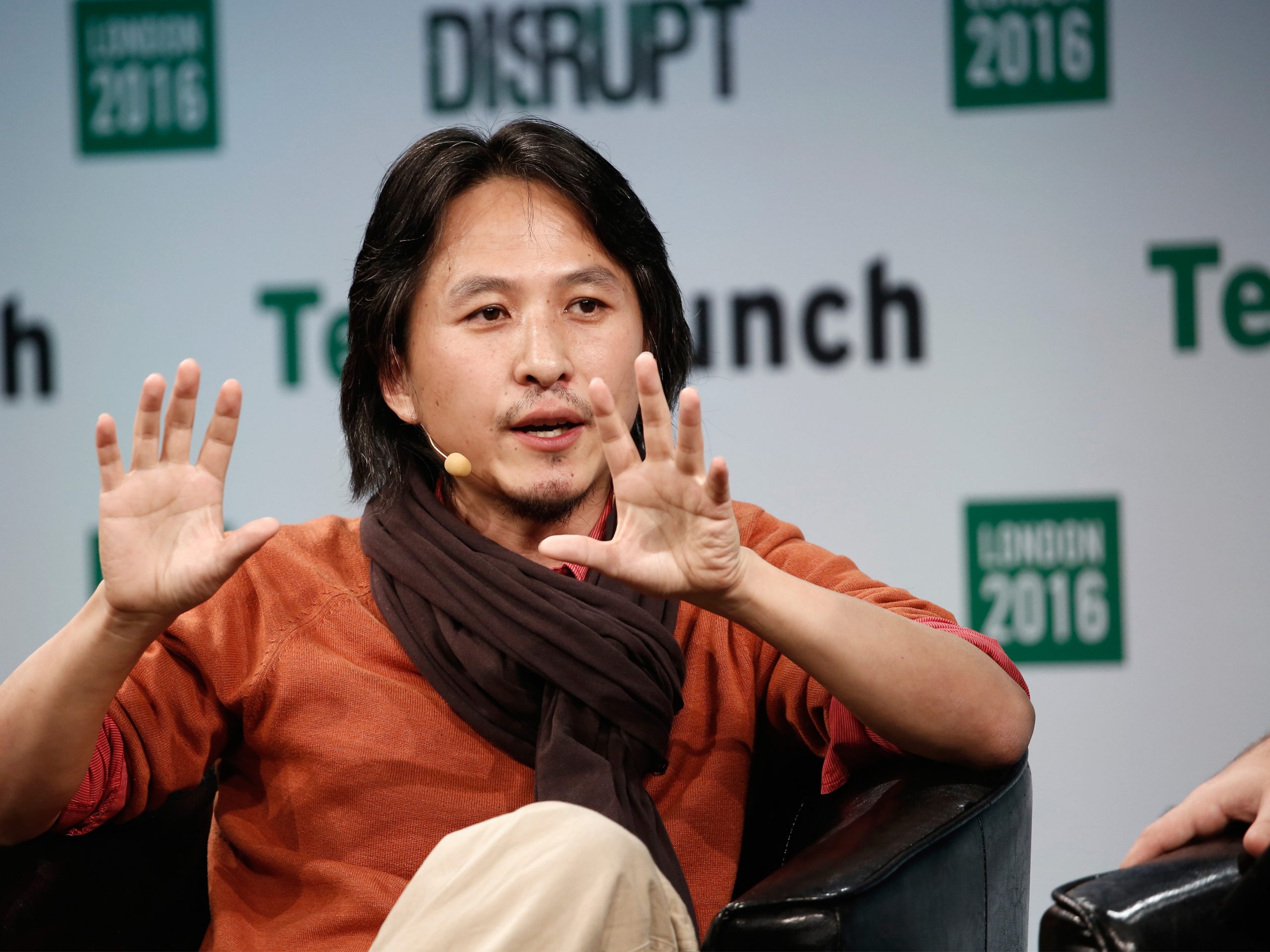- TikTok, the viral video-sharing app, is headed up by Alex Zhu, as revealed in a recent New York Times profile.
- Zhu is the cofounder and former co-CEO of Musical.ly, a US lip-syncing app that TikTok’s parent company ByteDance acquired for $1 billion, then shut down and merged into TikTok in 2018.
- Here’s everything we know about the 40-year-old Zhu, who has kept a relatively low profile in his time since Musical.ly shut down and is in charge with heading up TikTok.
- Visit Business Insider’s homepage for more stories.
Alex Zhu is a relatively secretive figure, and largely stays out of the media. In a recent profile in The New York Times, the 40-year-old Zhu was described as having “a little artsy oddness.” Zhu refers to himself on LinkedIn as a “designtrepreneur,” and lists his work location as Mars.

Foto: sourceAlex Zhu/LinkedIn
Source: The New York Times, Alex Zhu on LinkedIn
Zhu grew up in Anhui, a landlocked province in eastern China that stretches across two river basins.

Foto: A Hongcun Village scenic spot in Yixian County of east China’s Anhui Province.sourceHan Xiaoyu/Xinhua via Getty Images
Source: The New York Times
Zhu then attended Zhejiang University, one of the most prestigious institutions in China. He studied civil engineering, and graduated with a bachelor’s degree in 2000.

Foto: sourcedowell/Getty Images
Source: Alex Zhu on LinkedIn
By 2002, Zhu was hired to run the product design team at WebEx, a videoconferencing software maker later acquired by Cisco. Zhu left WebEx in 2004 to work at the German software company SAP in Shanghai.

Foto: SAP cofounder Hasso Plattner stands behind a lectern bearing the company logo.sourceReuters/Ralph Orlowski
Source: The New York Times, Alex Zhu on LinkedIn
Zhu found his way to the US by 2010 working out of SAP's Bay Area office. He took a special interest in education while there, and came up with the idea to develop an app for hosting short-form education videos.

Foto: Alex Zhu.sourceGreylock Partners/YouTube
Source: Business Insider
Throughout 2013, Zhu and Luyu Yang — cofounders and longtime friends —spent six months building the educational app, called Cicada, and raised $250,000. "It was doomed to be a failure," Zhu later told Business Insider. "The day we released this application to the market, we realized it was never going to take off."

Foto: sourceNancy Stone/Chicago Tribune/Tribune News Service via Getty Images
Source: Business Insider
With only 8% of their money remaining, Zhu was determined to brainstorm a new idea instead of returning the funding to investors. As the team scrambled, Zhu took a brief gig at Microsoft driving its "mobile disruption" initiatives in the summer of 2014.

Foto: Microsoft cofounder Bill Gates.sourcePorter Gifford/Getty Images
Source: Business Insider, Alex Zhu on LinkedIn
Around this time, Zhu embarked on a memorable train ride from San Francisco to Mountain View, California. He noticed a group of teens nearby passing around their phones, half of them listening to music while the other half were taking photos and decorating them in emoji.

Foto: sourceBefore They Were Famous/YouTube
Source: Business Insider
Zhu thought about how he could combine these different features into a single social app for teens, and the idea for Musical.ly was born. The team behind Cicada turned Zhu's idea into an app in only 30 days, and in July 2014, launched Musical.ly for creating 15-second lip-syncing music videos.

Foto: Musical.ly app.sourceMusical.ly
Source: Business Insider
Musical.ly came to the US, and hit its stride when it reached the No. 1 spot in the US iTunes store. That same year, Zhu returned to China to reunite with his Cicada-turned-Muisical.ly cofounder and co-CEO, Yang, to build up the company together out of Shanghai.

Foto: The early Musical.ly team split between San Francisco, left, and Shanghai.sourceMusically
Source: Business Insider
In November 2017, a massive Chinese company called ByteDance acquired Musical.ly for $1 billion. At the time, Zhu said the deal would help Musical.ly to expand into Asian markets as a standalone app. It's not clear how much Zhu made from the acquisition.

Foto: ByteDance CEO Zhang Yiming.sourceVisual China Group via Getty Images; Ruobing Su/Business Insider
Source: Business Insider
However, less than a year later, ByteDance shut down Musical.ly and merged it into its existing short-form video app called TikTok. "Combining Musical.ly and TikTok is a natural fit given the shared mission of both experiences — to create a community where everyone can be a creator," Zhu said at the time.

Foto: sourceReuters
Source: Business Insider, Musical.ly
Following the death of Musical.ly, Zhu was given the title of TikTok's senior vice president, and stayed on to help with the transition. He then left ByteDance to take some time off to reportedly "rest, go clubbing in Shanghai and listen to jazz." He kept a low profile and stayed out of the media.

Foto: sourceJohn Phillips/Getty Images for TechCrunch
Source: Musical.ly, The New York Times
Then, Zhu rejoined the TikTok team earlier this year, not long after ByteDance achieved a $75 billion valuation. Zhu then took over as head of TikTok, he revealed in a November interview with the Times.

Foto: sourceChina Stringer Network/Reuters
Source: The New York Times
Zhu's interview came at a tricky time for TikTok, which faces scrutiny in the US over allegations it censors content dealing with "highly controversial topics" at the request of the Chinese government. Zhu told the Times that if China's president ever asked him to take down a video from TikTok or access users' data, he would refuse.

Foto: sourceGreylock Partners/YouTube
Source: Business Insider

